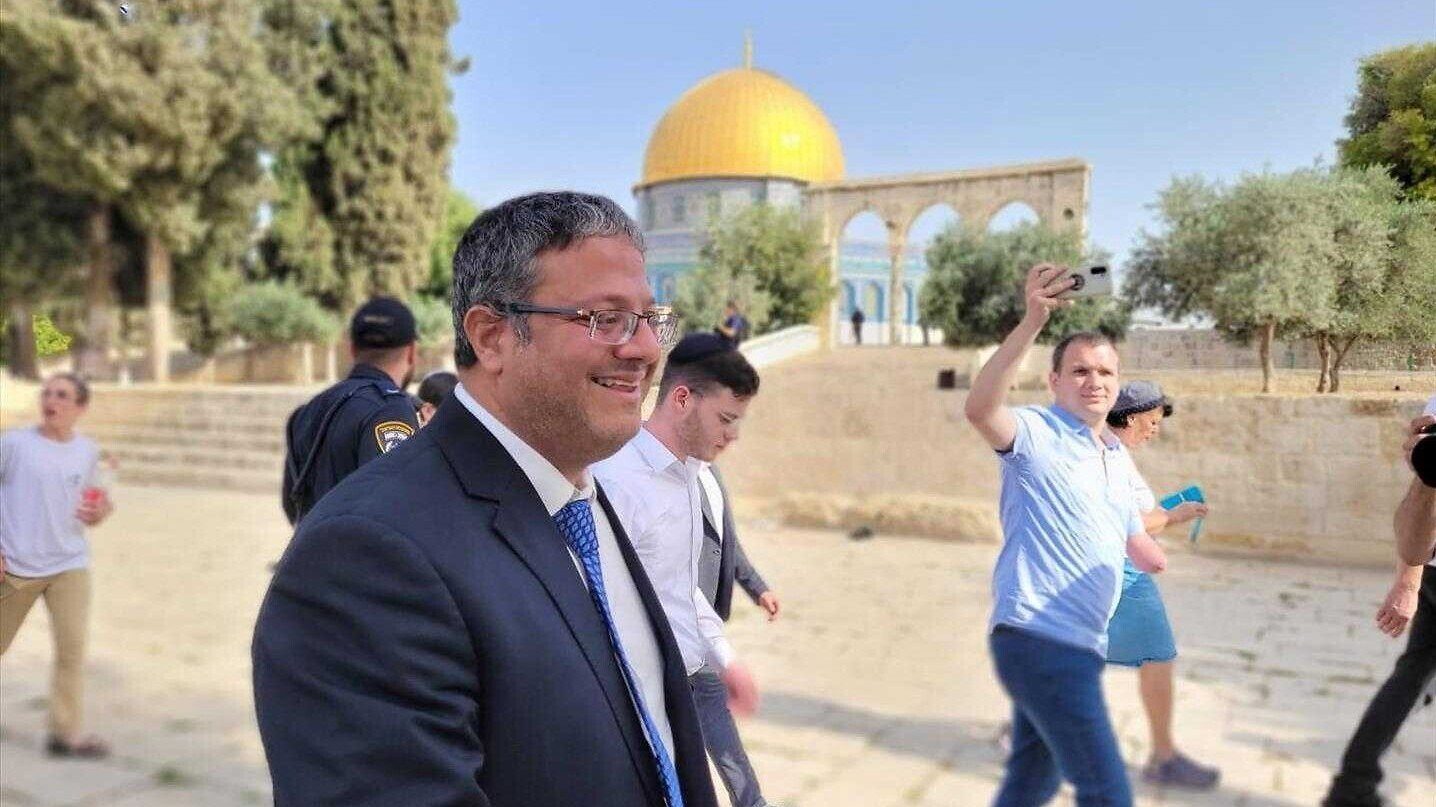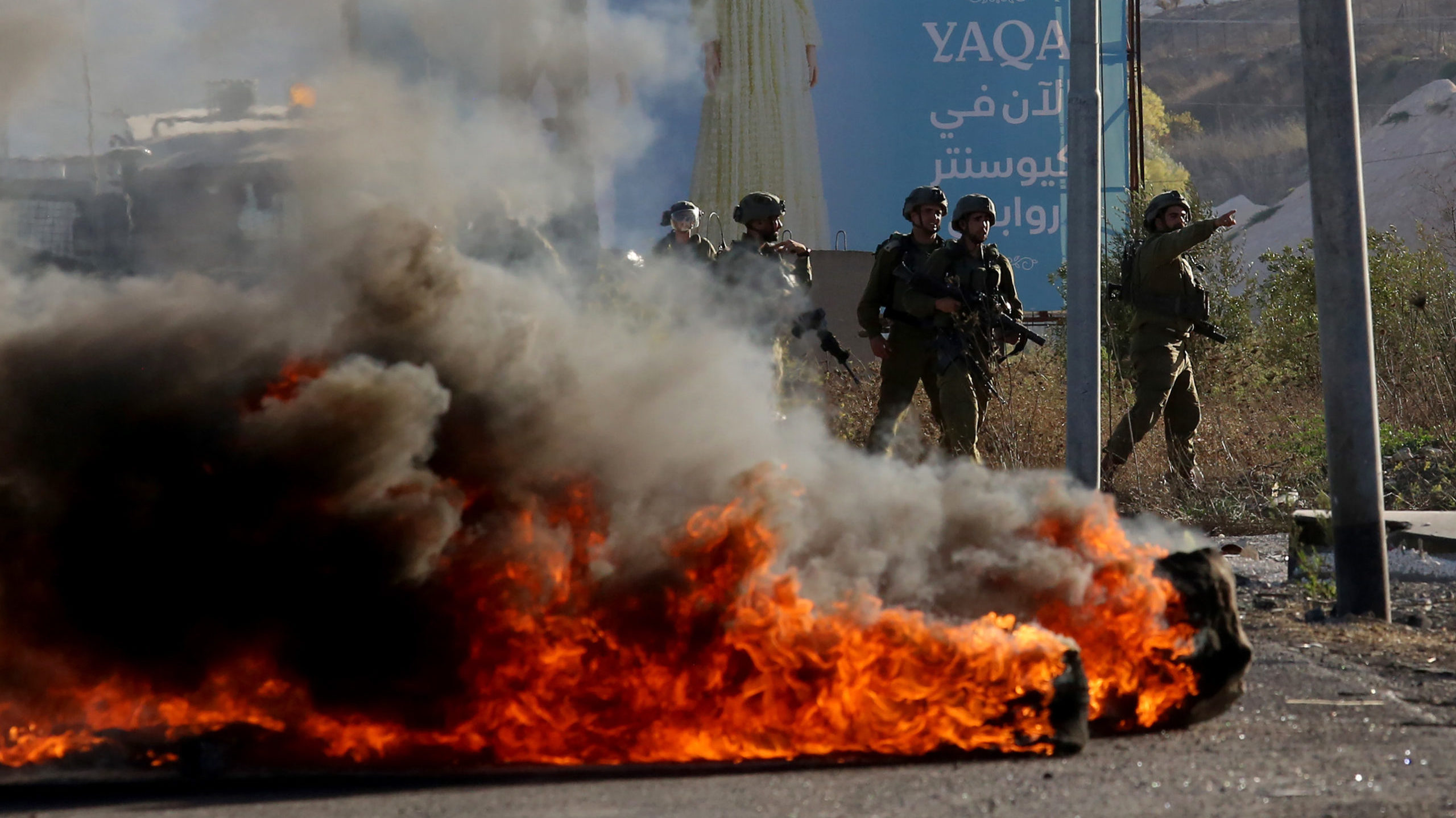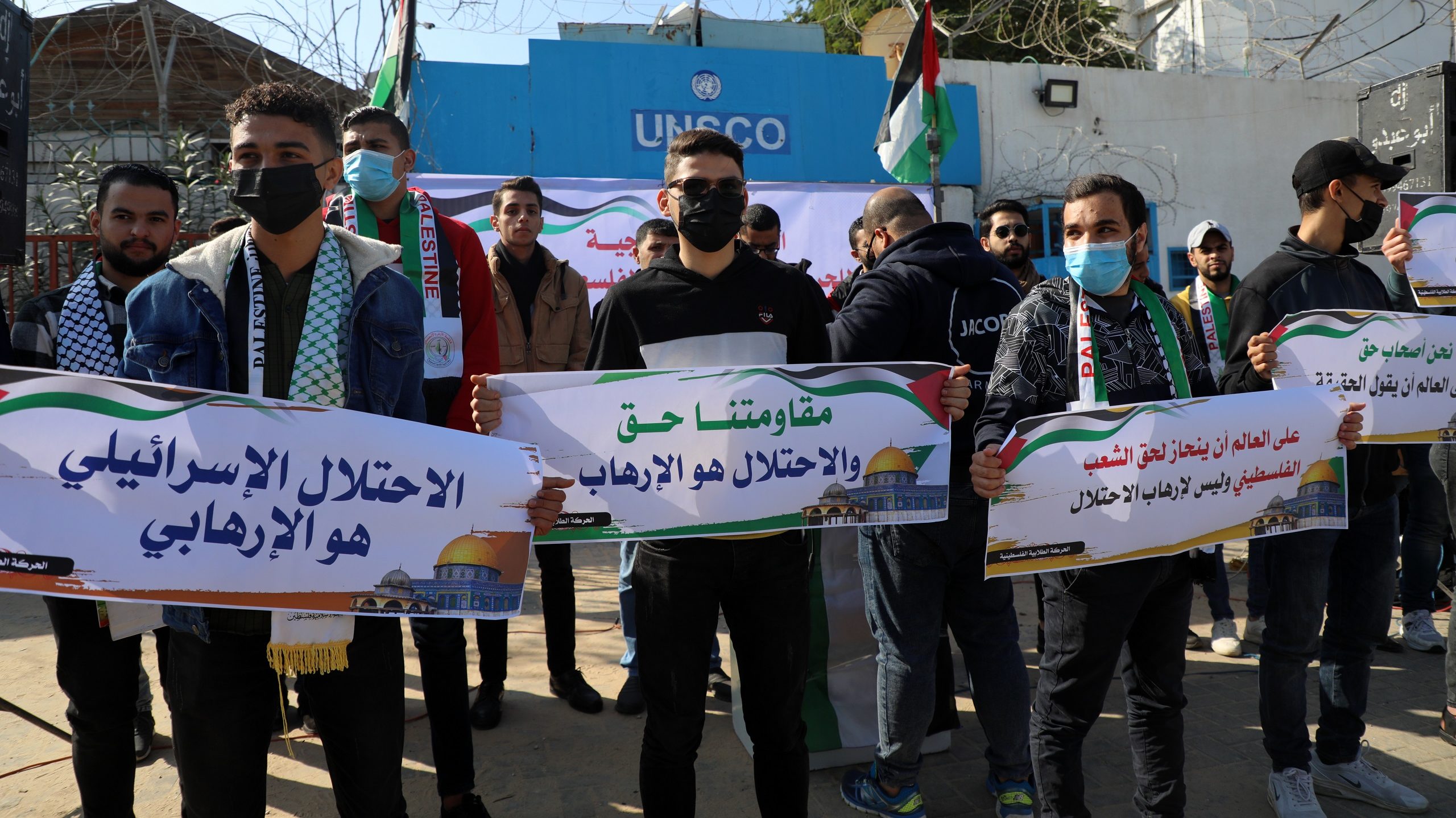Israel’s Hard-line Government Facing Multifront Palestinian War, Analysts Warn
Gaza and West Bank-based commentators say military groups are closely coordinating on an ‘unprecedented’ response to new Israeli policies on Jerusalem, prisoners and settlements
Israel could be facing a multifront conflict with united armed groups in the West Bank and Gaza Strip should its new hard-line government continue on the path of “provocation,” Palestinian analysts are warning.
Palestinian writer Adnan Alsabbah, who is based in the West Bank city of Jenin, tells The Media Line that this situation can be attributed to the nature and composition of the Israeli government.
“We are facing a fascist, racist government par excellence, which boasts of this openly and publicly. The behavior, laws and decisions of this government against Palestinians clearly indicate that it is definitely going to war,” Alsabbah says.
The new Israeli government, the most right-wing in the country’s history, was formed in December 2022 by Prime Minister Binyamin Netanyahu. Its hard-line cabinet members, the analysts say, have moved to implement a series of strictly anti-Palestinian policies and measures that increase the possibility of the entire region entering a more complicated and tense situation.
“They are corrupt, criminals, outlaws who have personal interests but want to be leaders,” Alsabbah says. “They use us [Palestinians] to cover their crimes and justify their presence in power. This government will drag all of us to the struggle square. In the coming days, they will continue to provoke us by repeatedly storming Al-Aqsa Mosque.”
Alsabbah is referring to a recent visit to the Jerusalem site by Israel’s new ultra-nationalist National Security Minister Itamar Ben-Gvir. The mosque is located on the Temple Mount, known in Islam as Haram al-Sharif, a site holy to both Jews and Muslims and the scene of frequent clashes between Palestinians and Israeli security forces.

Israeli government minister Itamar Ben-Gvir makes a controversial visit to the Temple Mount in Jerusalem on January 3, 2023. (Twitter)
Palestinian military groups in Gaza have threatened to respond harshly and hold Israel responsible for all the consequences if it doesn’t “stop desecrating our religious sanctities and our Palestinian blood.”
“We are extremely outraged by this government’s criminal practices,” Abdellatif Alqanou, a spokesman for the Islamist Hamas movement that rules Gaza, tells The Media Line. “The occupation government must bear full responsibility if it continues its foolishness [as] the next explosion will be unprecedented.”
Alqanou calls on the international community to urgently intervene and “put pressure on Israel to back down from its plans targeting Al-Aqsa Mosque, the Palestinian prisoners in Israeli prisons and the Palestinian existence and identity.”
Ayman Rafati, a Palestinian journalist specializing in Israeli affairs, tells The Media Line that Israeli actions in Jerusalem present a red line for Palestinians.
“In the light of this far-right government, the Palestinian resistance movements set clear red lines that can’t be crossed, most notably regarding occupied Jerusalem and Al-Aqsa Mosque.”
Give the gift of hope
We practice what we preach:
accurate, fearless journalism. But we can't do it alone.
- On the ground in Gaza, Syria, Israel, Egypt, Pakistan, and more
- Our program trained more than 100 journalists
- Calling out fake news and reporting real facts
- On the ground in Gaza, Syria, Israel, Egypt, Pakistan, and more
- Our program trained more than 100 journalists
- Calling out fake news and reporting real facts
Join us.
Support The Media Line. Save democracy.
According to Rafati, continued Israeli attempts to change the current reality at the Al-Aqsa Mosque, the Judaization of the holy city, the increase of crimes against Palestinians in the West Bank, the expansion of illegal settlements and plans for West Bank annexation, the elimination of resistance in Jenin and Nablus, and the oppressive measures and policies against Palestinian prisoners are all key determinants that could inflame the entire region.
Assuming that Israel continues to move ahead with its policies, several scenarios involving Gaza would be on the table, Rafati says.
“The [most unlikely] scenario is the possibility of going to a long[-term] calm between Israel and the Palestinian resistance movements via reaching a prisoner exchange deal,” Rafati says, referring to a swap for two Israeli captives and the bodies of two Israeli soldiers whom Israel says are currently being held in Gaza by Hamas.
“The other and most likely scenario is heading into a military confrontation, or maybe several, between the two sides who have already started to prepare for this moment,” he says.

Palestinians clash with IDF troops during a protest in the West Bank city of Jenin, Sept. 28, 2022 (Photo by Nedal Eshtayah/Anadolu Agency via Getty Images)
Israeli media outlets have indicated that the Israel Defense Forces is conducting intensive military exercises on land, sea and air to deal with a future reaction in Gaza, particularly as the IDF expects border incursions from the Strip via sea or land.
Palestinian military movements are also gearing up to face the coming challenges, Rafati says.
“We have witnessed a number of military drills in Gaza during the past period,” Rafati notes. “The latest was a significant military exercise carried out jointly by Palestinian military movements.”
Nael Abuowdah, the Gaza-based political leader of the Palestinian Mujahideen Movement, tells The Media Line that this drill was “an important and national achievement of the Palestinian joint operation [bureau] that includes the majority of the Palestinian military groups.”
He says that the exercise took place close to the Gaza border with Israel, “to tell the Israeli occupation that our military system is now stronger, more developed, and ready for confrontation.”
Abuowdah draws attention to the concept of an integrated Palestinian military operation.
“We are counting on the continuation of the resistance acts in the occupied West Bank, through the military formations that have emerged, starting with the Jenin brigade, the Lions’ Den and the Mujahideen Brigades. This is an integrated resistance project [across] the entire Palestinian geography.”
Rafati also believes that the Palestinian groups in both territories are beginning to coalesce after years of internecine hostility between Hamas in Gaza and its political rival Fatah, which is headed by Palestinian Authority President Mahmoud Abbas and controls the West Bank.
“Despite all the Israeli attempts over the past years to separate Gaza and the West Bank, what we see today [in terms] of great connection and unity prove that this plan has completely failed. For instance, what happens in Jenin or Nablus is mostly followed by a response from Gaza.”
This means that several Palestinian fronts could explode at once, depending on the Israeli government’s attitude in the coming period, Rafati says.
“The West Bank, Gaza, Jerusalem, the 1948 occupied territories and maybe northern Palestine and southern Lebanon might be parts of the coming fight,” he suggests.
This raises a question about the level of coordination and communication between the Palestinian military groups.
Gaza-based political analyst Mustafa Alsawwaf does believe that groups in the West Bank and Gaza Strip are coordinating their activities.
“The Palestinian resistance movement in Gaza is in full and continuous communication with the resistance brigades in the West Bank,” he says. “Actually, maybe part of what’s happening there now is upon the directions of the resistance movements here [in Gaza].”
Alsawwaf predicts that the next confrontation could take place around summer, but ruled out the possibility of any external forces intervening in the future “unless it’s Palestinian.”



